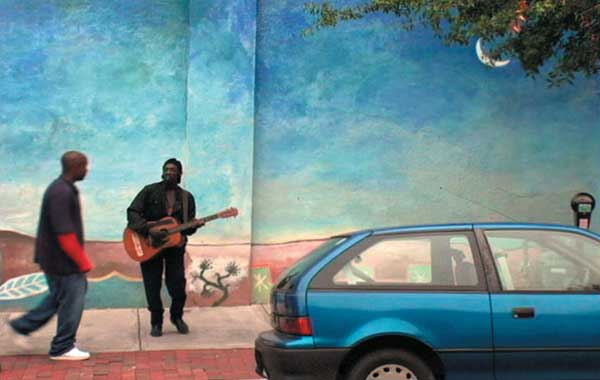SOMEBODIES
|
Roger Ebert’s coverage
of Somebodies from Sundance:
PARK CITY, Utah. John
Cooper, who has been programming films at Sundance for almost 20 years, had a
particular tone in his voice as he introduced Somebodies Friday afternoon. This
wasn’t a routine introduction. Certain moments at Sundance we remember,
he said, because they were the beginning of something great.
You would expect that
Somebodies would then unreel as a profound social statement or bold visual breakthrough.
But no. This new film by a director from Georgia named Hadjii is great in a different
way, for how it breaks through the conventions that wall in films about African-Americans.
It is not uplifting or angry or about drugs or crime or sports or music or sex.
It is about ordinary young people who are very, very funny because they don’t
seem to know they’re in a movie, and aren’t performing for any imagined
audience, black or white. Their purpose is to celebrate themselves.
Black films are under so much
pressure to provide role models, Hadjii said in a Q&A after the screening.
These characters are not good or bad. They’re going through a transitional
period. They’re living, in other words.
Hadjii stars, as
Scottie, a college student who drinks too much and sleeps through church services
and meets a girl (Kaira Whitehead) who likes him but isn’t going to sleep
with him until he has his paperwork. At a clinic where she takes him to get tested
for AIDS, she suggests the player's special, a package price for all the popular
STDs.
|
Scottie's friends,
concerned about his drinking, decide to stage an intervention.
But he’s late getting home, and they start to drink and play
cards, and when he arrives they decide to put off the intervention
while they go out and get something to eat. There are
several church services in the movie, one featuring a black preacher whose holy
rants are punctuated by the sober, factual footnotes and responses of the deacon
who stands beside them. Their rhythm in these sermons achieves a kind of comic
verbal ecstasy. No less funny is the all-white Campus Christian Coalition meeting
Scottie attends. These
scenes don’t make fun of church or religion; they are funny, but fond.
So is the whole movie. It’s
more a matter of tone than plot, of letting characters (including uncles, aunts,
friends, visitors) run loose in verbal riffs of astonishing invention and remarkable
sexual speculation. If along the way Scottie is somewhat redeemed, that
happens in the margins; the movie is not about the salvation of
Scottie, but about the process by which he gradually moves in a better direction.
Like all really good films,
Somebodies defies description, because it’s not about plot, it’s
about how it celebrates its characters. It started life as a screenplay when
Hadjii was a student at the University of Georgia; his professor, Nate Kohn and
his wife Pamela Kohn admired it and decided to produce it. Local money supplied
the small indie budget. What you feel, watching the film, is that moments of
truth are being set free; that unlike many films about African-Americans, this
one isn’t made with the slightest concern for the impression it might make;
it is being generated by the joy of the characters.
|
|
| |
|
|
|











